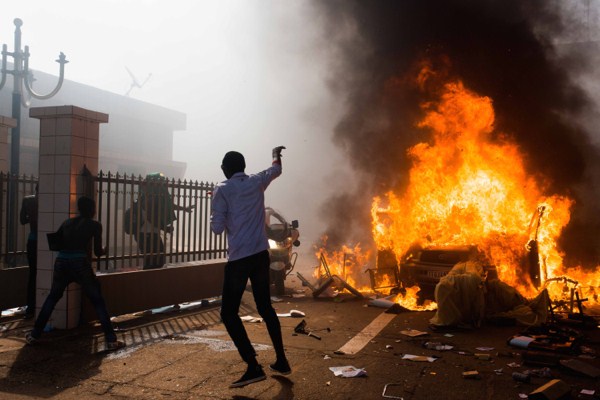On Oct. 30, after several massive demonstrations against efforts by supporters of long-serving President Blaise Compaore to remove presidential term limits, protesters in Burkina Faso set fire to the country’s parliament to prevent a vote from taking place on the issue. The next day, Compaore resigned. After what appeared to be a power struggle within the military, Lt. Col. Isaac Zida emerged as the head of a transitional government, which faces continued pressure from protesters and opposition leaders to hand over power to civilians. The situation remains fluid.
The protests that swept Campaore from power drew on longstanding grievances and were catalyzed by political machinations in advance of a presidential election initially scheduled for 2015. They are not, as some analysts have wondered, the first indication of an impending “African Spring.” Yet the unrest in Burkina Faso does signal that 2015 will be a year of contentious politics in several sub-Saharan African countries where pre-existing tensions will intersect with elections.
At heart, the protests are a call for Burkina Faso to move away from autocracy and inequality and to change its leadership. Compaore came to power in a 1987 military coup that claimed the life of Capt. Thomas Sankara, an anti-imperialist revolutionary who had sought to make Burkina Faso economically self-sufficient. Compaore undid Sankara’s economic policies and escaped the “democratic wave” that swept parts of Africa in the 1990s. Though he subsequently won five presidential elections, often with more than 80 percent of the vote, he ruled through a combination of authoritarian repression and clientelist corruption.

